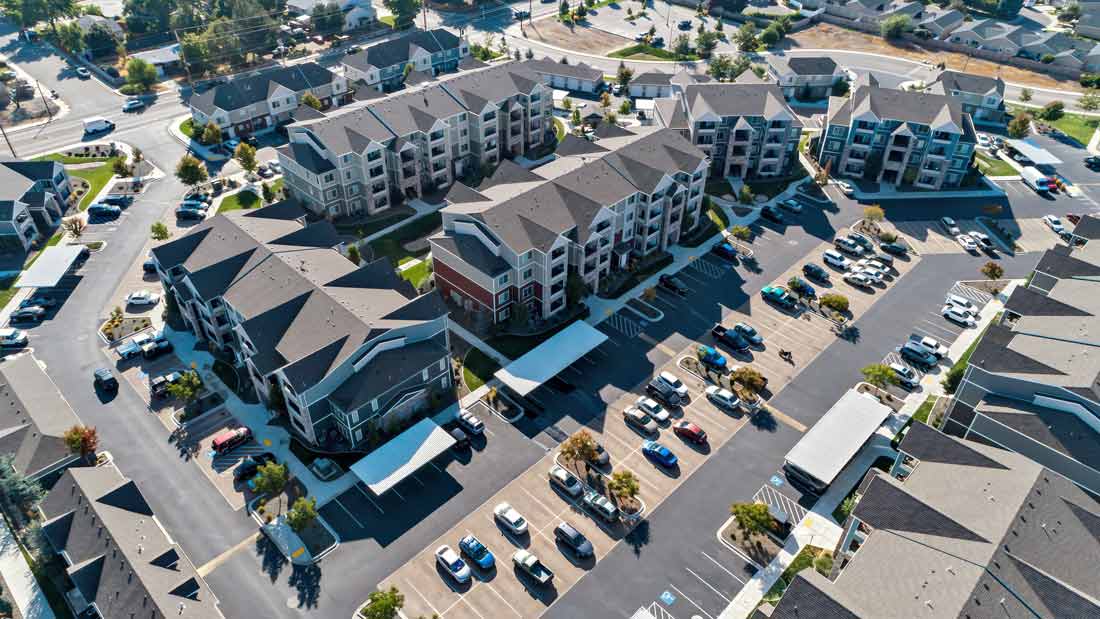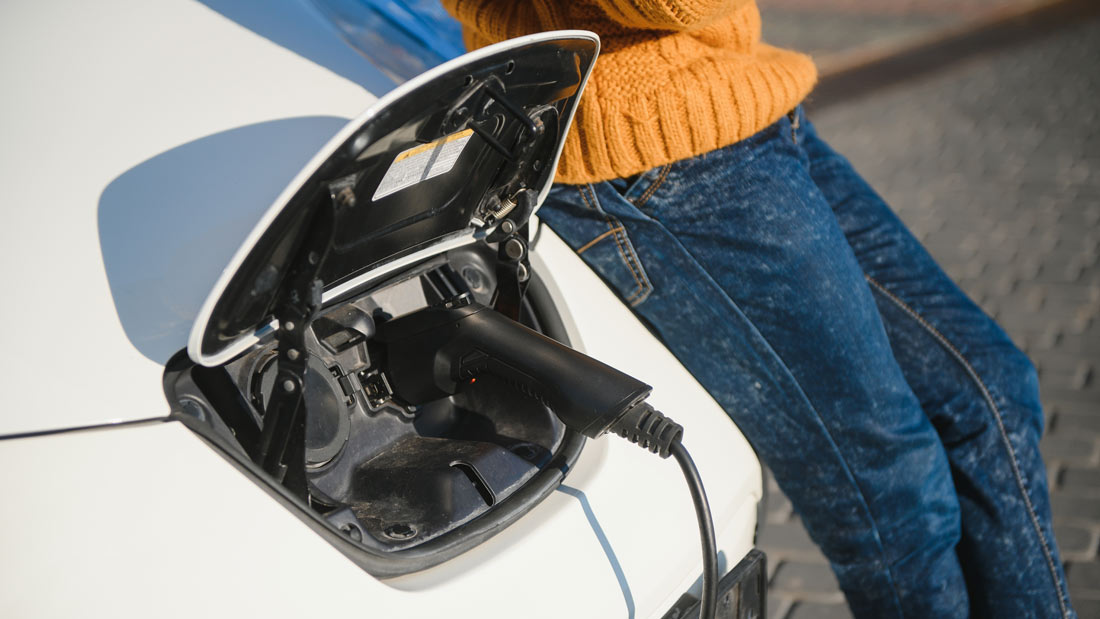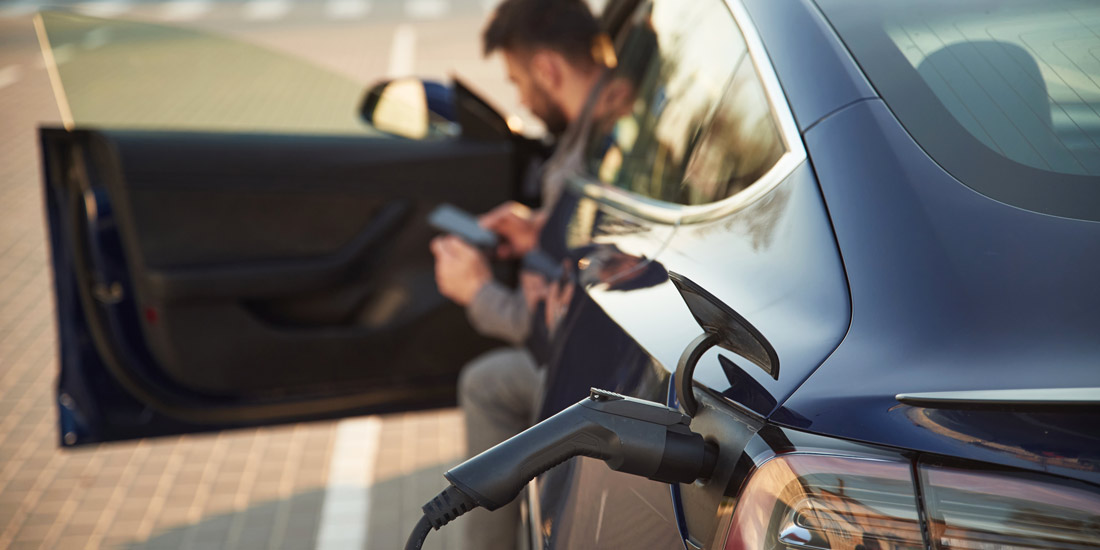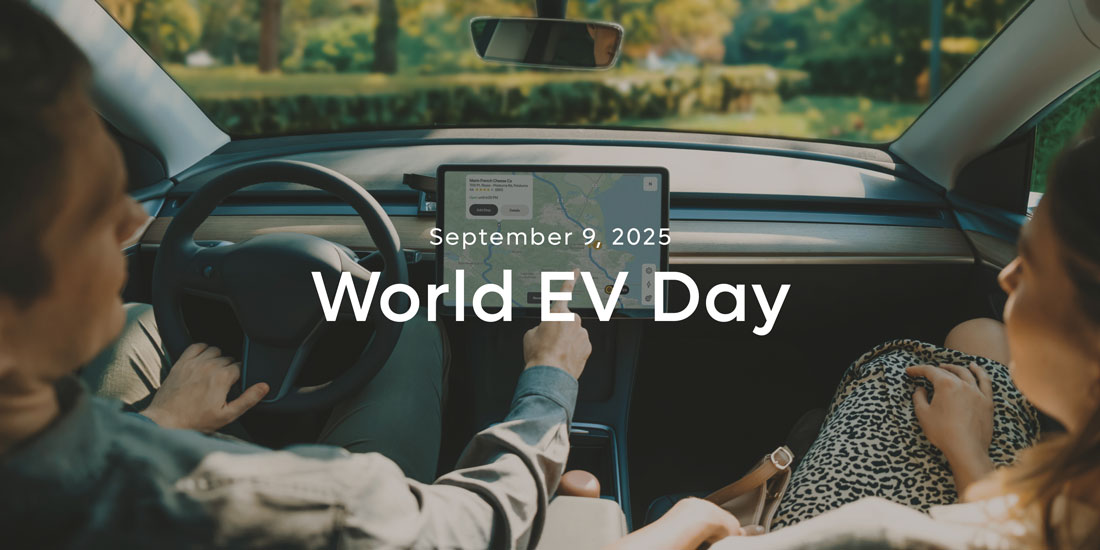
Electric vehicle (EV) charging plugs vary from region to region, with most car manufacturers adhering to the regional standard. This allows vehicle owners to more easily charge at any local charging station they encounter. Some plugs only allow for Level 1 and Level 2 AC charging, while other plugs can handle Level 1, Level 2, and Level 3 DC fast charging.
EV charging plug types
Here are basic definitions and regional compatibility for each type of EV charging plug.

SAE J1772
The Society of Automotive Engineers J1772 plug, more commonly known as a J-plug or Type 1, uses a five-pin design. It is designed to be compatible with most EVs, including battery electric vehicles (BEVs) and plug-in hybrid electric vehicles (PHEVs). The J1772 plug can be used with Level 1 and Level 2 charging stations, which are typically used for home and public charging. It is used primarily in North America and Japan, with almost every North American electric vehicle or plug-in hybrid having this plug except for Tesla. It has a maximum power output of 19.2 kW.

CCS Type 1
The Combined Charging System Type 1 is a seven-pin combination AC/DC charging connector. It combines the SAE J1772 standard plug with two additional high-speed DC fast charging pins, allowing it to support Level 3 DC fast charging. This extension includes a communication pin that allows the charging station and EV to communicate and negotiate charging rates. It is used primarily in North America and Japan. Most EVs in North America utilize this plug other than Tesla. It has a maximum power output of 360 kW.

CCS Type 2
A versatile, widespread EV charging plug used primarily in Europe. It combines the European standard Mennekes type 2 plug with two additional high-speed charging pins. This allows the plug to be used for both AC and DC charging, including Level 1, Level 2, and Level 3 DC fast charging. Unlike in North America, Tesla model 3 and Y owners in Europe can charge their vehicles with a CCS Type 2 plug. Tesla model S and X owners must still use an adapter. The Type 2 connector includes a communication protocol that allows the charging station and EV to exchange information, such as the charging rate, state of charge, and charging status. It has a maximum power output of 360 kW.

CHAdeMO
With a maximum power output of 400 kW, CHAdeMo plugs are the preferred standard for DC fast charging in Japan. However, it is less common in other regions such as Europe and North America, where other types of DC fast-charging plugs such as CCS (Combined Charging System) are much more prevalent. It uses a two-way communication protocol between the charging station and the EV to ensure safe and efficient charging.

North American Charging Standard (NACS) / Tesla
This plug was previously known as the Tesla charging connector. The plug was proprietary to Tesla and was used on all North American Tesla vehicles. In 2022, the company opened up the standard to other car manufacturers. It has a maximum power output of 250 kW.
Chargie powers up drivers and property owners
Fast, reliable charging for drivers
We provide EV drivers fast, reliable charging through our network of Level 2 and Level 3 charging stations. Our 98%+ network availability ensures drivers come back to a fully charged car and our 24/7/365 support allows us to help at every turn along the way.
Easy turnkey installation for property owners
Add value, not work, with our turnkey solution for commercial and multifamily properties. Our in-house teams provide properties with end-to-end project management, installation, and ongoing operations and support. We’ll even do all the rebate paperwork and applications for you. Reach out to our team of EV infrastructure experts for a free installation evaluation.
























